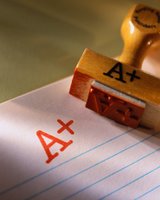
Does it matter if you are first or last, if you are not in the race? Aka why can't primary school education be more like post-graduate education?
Just the other day, I read a paraphrase of today's blog entry title in an online parenting forum . The comment made by the contributor was in relation to the academic paper chase in schools. It struck a chord with me instantly.
It came at a time when we are considering home-schooling as an option for our eldest. The wife and I have been revisiting the idea, primarily due to a pressing need to realign his learning journey on several fronts - his learning style, temperament and his learning difficulties, in relation to our own beliefs and assumptions about education and development.
The wife and I went through the school system in our time and got through those years with our degrees, with a fair amount of success, I would think. I mean, I have 2 post-graduate degrees and am now in the 2nd year of my doctoral research.
However, I note that my most eventful learning was in these recent years, when learning was truly discovery, in pursuit of answers to questions that I was genuinely interested in. The individual journey has been fulfilling because it revealed the innate creativity and problem-solving resources that I could harness. I guess a deeper, more fundamental reason would be that I am no longer under the pressure of being compared or measured. If I'm only racing against myself, then it becomes a competition of an even purer form - wrestling against my own limits, struggling against habits that hinder - in order to achieve a result worthy of myself.
It's important to clarify that competition is not inherently bad. In appropriate settings and when processed properly, academic competition and testing can yield positive benefits. In my case, I've discovered how my son, is increasingly turned-off from learning because of the emphasis on results or teaching to the test. This flies in the face of recent research into social and emotional learning, multiple intelligences, learning styles and brain-based learning.
Our conversations with the eldest inevitably focuses on the homework that he has, deadlines, to stop dreaming and focus on completing his work etc. I would much rather like the conversation to be about what he has enjoyed learning and how what he's learned can connect with other things in the world. In a perfect world, we would be having that same conversation with him and he would also be able to thrive in a competitive, exam-centred environment. Since that is not something that is foreseeable, the next best solution would be to place him in a context which allows him to re-discover the joy of learning. How that will transpire will depend on our considerations over the next few weeks.
I think the deeper question here is not about protecting the child per se from the harsh realities of life. Rather, it has to do with preserving an essential attitude that is at the centre of our existence as human beings - a healthy curiosity and a love for learning. Otherwise, I might end up having a child who is well-schooled, but not at all educated.
Noel Tan
(*All text is copyright of Trailblazer Trainers Pte Ltd)
Labels: academics, homeschooling, learning





